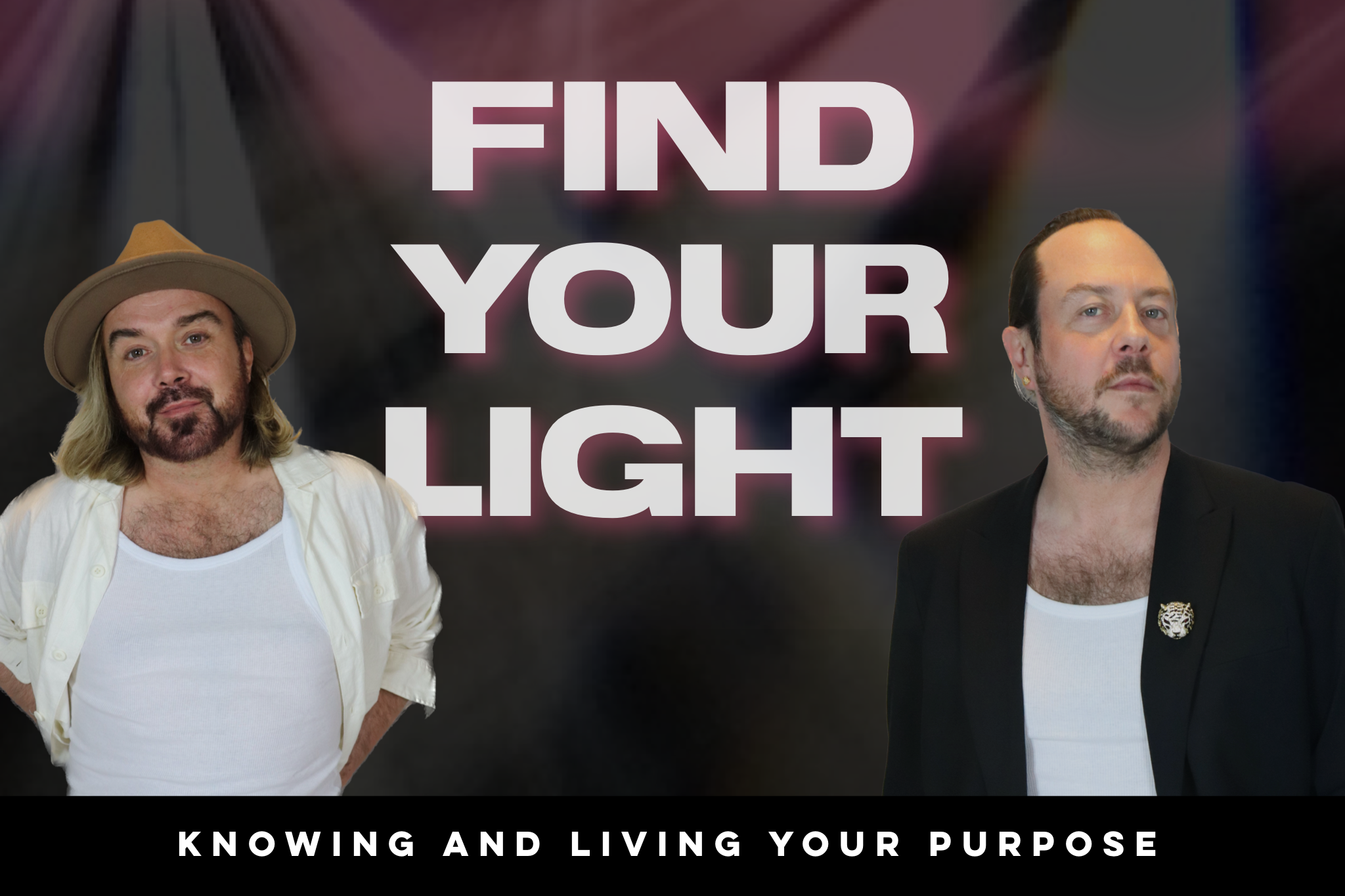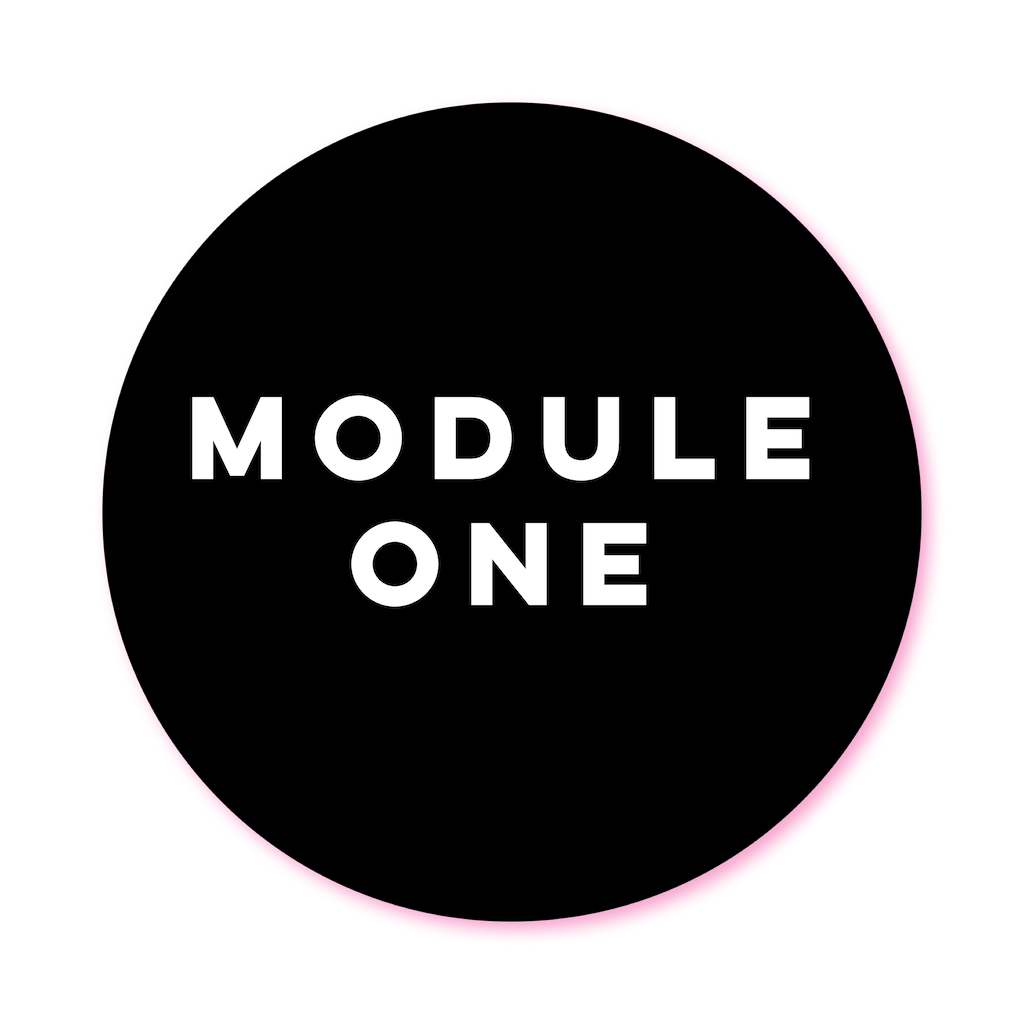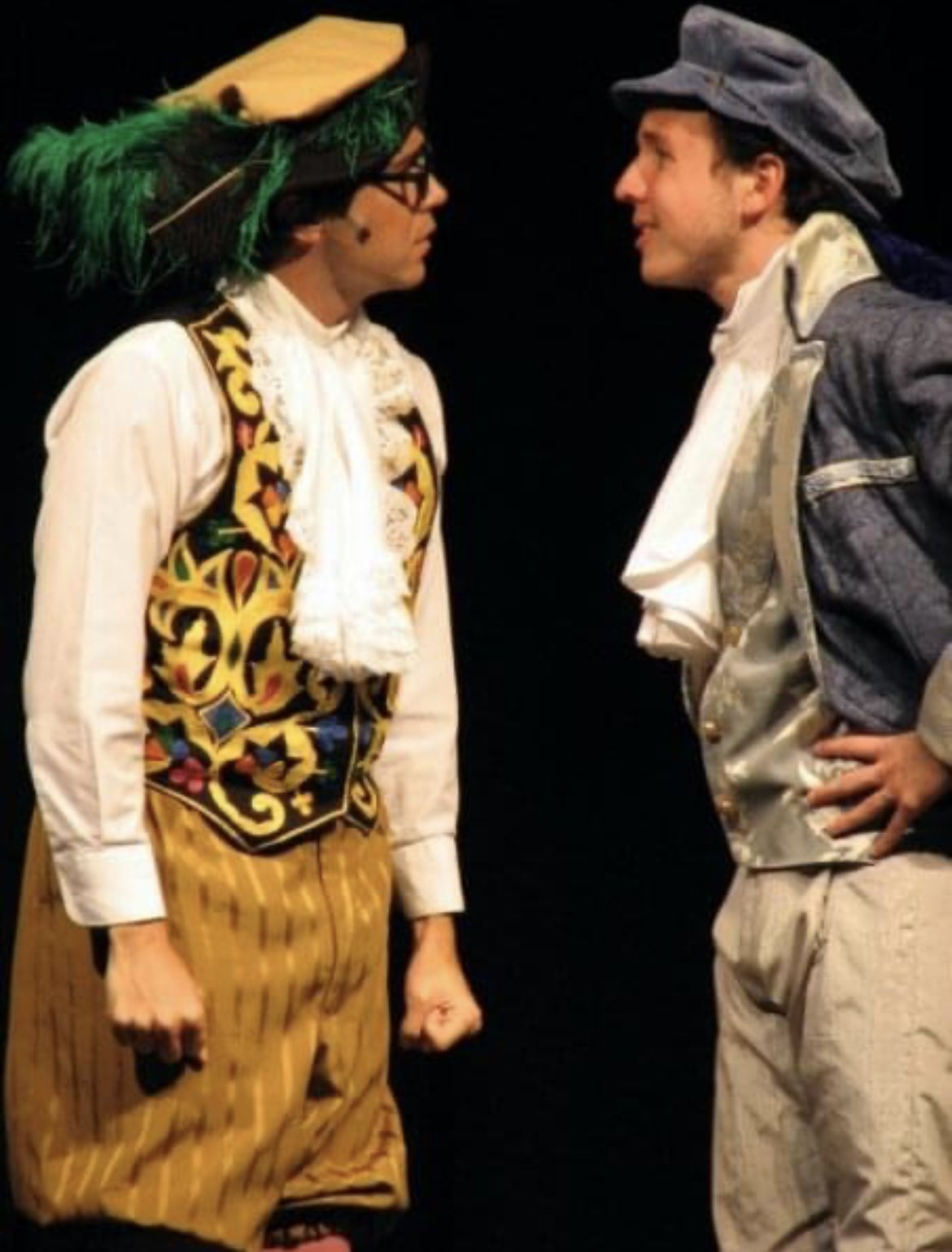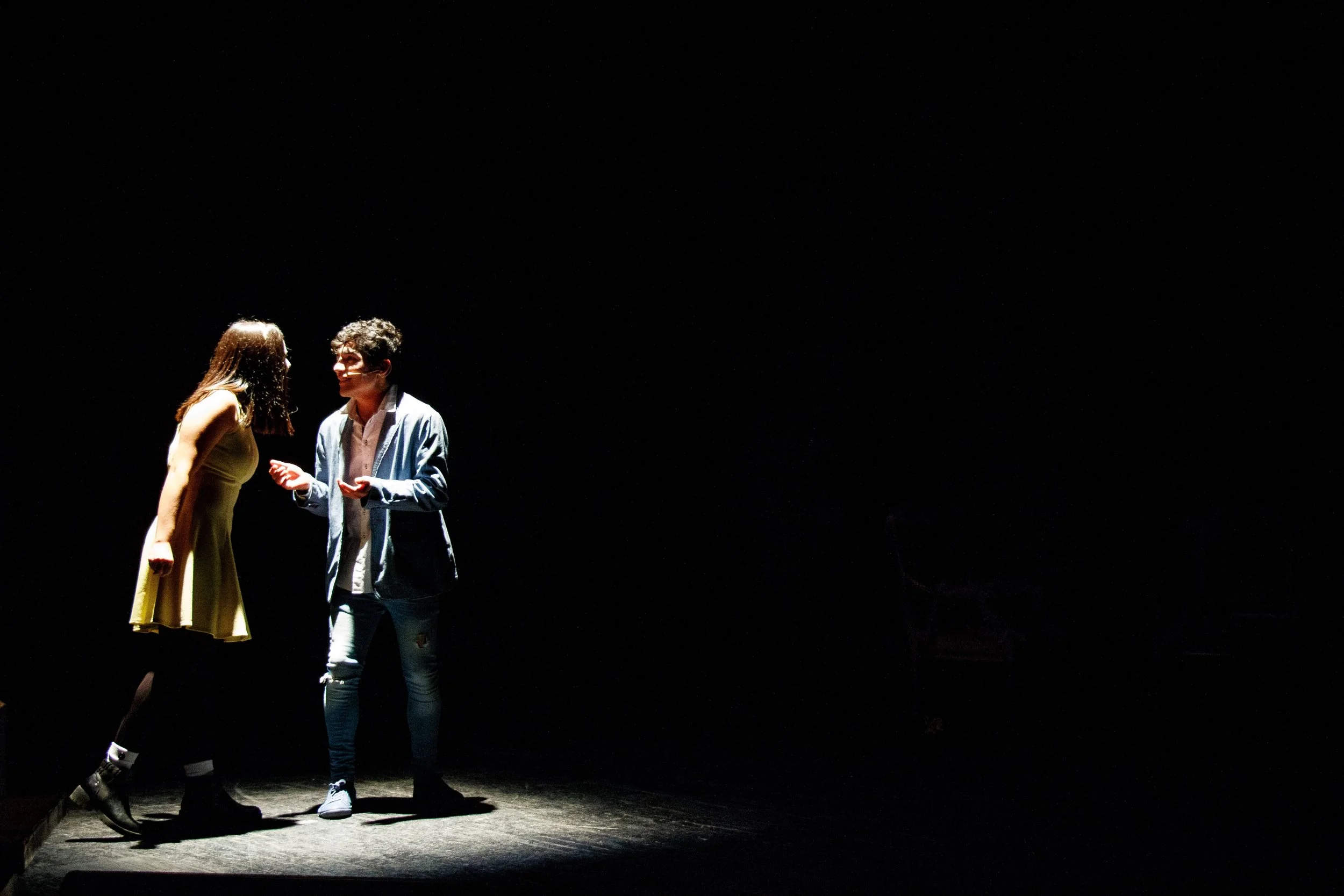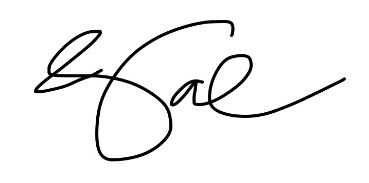For much of my life I worked as a professional actor, and as a result, I tend to think in ‘theatre terms’. Much of my analogies or parables that I teach from in a spiritual context are directly linked to my experience as an actor; whether that is found in the deep understanding that I have of human nature because of the immense study of my craft, or in the practicalities of production like ‘finding your light’; I am wired to think in terms of stage and screen. ‘Find your light’ is a term that you will hear, again and again, if you spend any time in any theatre, anywhere in the world during what is known as ‘tech-week’. This is the point in production where the actor and director have worked tirelessly at creating the emotional, psychological, and physical content of what will eventually end up on stage. They have worked out the ‘blocking’ which is where the actor moves throughout the space; things like ‘cross the room and sit on the sofa when you say this line’, they have worked out the ‘motivation’ which may sound like ‘what is your reason for crossing to the couch and sitting on the sofa when you say that line? Are you crossing to move away from someone you’re having a conflict with? Are you crossing to sit next to someone that you’re falling in love with? Are you sitting down because you feel faint?’ All of the work that the actor and director do in collaboration is usually fleshed out in some sort of rehearsal space and not on the actual stage that the play will be presented on - and so ‘tech-week’ is the time when the actor is (many times for the first time) stepping foot onto the stage where, eventually, the audience will see the story unfold.
Behind the scenes you have stage managers, lighting designers, stage hands, and all sorts of other crew members who work tirelessly at bringing the vision of the director to life with all of the technical aspects of production. The actor will show up and move through the blocking on the actual stage. Most of the time there is a learning curve here because, inevitably, the stage is quite different from the rehearsal space in which the actor has been working and they will have to learn the space and adjust their movements according to where the lighting designer has placed his lights, lest the audience can’t see them on opening night. So then, ‘find your light’ is a term that means…’we can’t see you….you’re not standing under the light….find your light!’ You will know when you have found your light, usually when you feel the warmth beaming on your face from the megawatt lightbulb cascading its candescent beam upon you, coupled with the fact that most everything else in your vision is obstructed by the monumental brightness of the megawatt lightbulb cascading its glaring beam upon you!
Now maybe it’s just me, but in my mind, this entire scenario is a perfect analogy of living a life of purpose and joy, and in this three module mini-course we are going to unfold before you, the mystery of how ‘finding your light’ on the stage of your own life..will create a joyful, fulfilling, and inspiring experience for you that feels completely aligned with your purpose and how you show up in the world.
Just as the actor finds his light, making it possible for the world to see and bear witness to the beauty of his work and dedication to his art, we as humans, can find our light, making it possible for the world to see and bear witness to the beauty of our unique purpose and the dedication we have to bringing that purpose into the world to serve others.
The first step to creating a life of purpose is knowing who you are, what is meaningful to you, what you love, and what makes you happy. This may sound simplistic, but in a world where we are inundated with outside noise berating us with who we ‘should’ be, what we ‘should’ want, and how, if we compare ourselves to others who are doing it better, we don’t deserve to be who we are, want what we want, and to show up in our uniqueness lest we aren’t social media worthy.
Sure, you may think you have a pretty good idea of who you are. After all, you’ve had how many years of practicing being you, isn’t that right? But let’s challenge that idea. How old were you when you began to mimic your schoolmates that were considered ‘cool’? When did you start dressing just like your favorite celebrities dressed on the covers of magazines? When did you start believing that you had to behave a certain way to be liked and accepted in social circles? How often do you introduce yourself as ________’s Mom/Dad or _________’s spouse? Our identities can be so wrapped up in how others perceive us, how we choose to project the most ‘acceptable’ parts of us, the labels that are thrust on us by society, or the roles that we have in the lives’ of others (mother, father, wife, husband, daughter, son, CEO, employee, unemployed, volunteer, rich, poor, sweetheart, bitch, kind, selfish…and the list goes on and on) that it isn’t any wonder that we have lost sight of who we really are.
When we were young children we had a good sense of who we were; we didn’t overthink how we showed up in the world, we didn’t compare our play with the way other children played, we didn’t feel unworthy of wanting what we wanted. When we were little we showed up unapologetically as ourselves. There was a time when something happened that caused a trauma response in your young psyche, maybe it was your parent’s divorce, maybe it was when your art teacher told you that you had to stay inside the lines, maybe it was when someone called you too skinny, or stupid, or ugly. That initial trauma can be as seemingly huge or insignificant to you now, but trust that in the early development of your brain…trauma can be anything and it can turn your world upside down! Whenever that initial trauma (whatever it may have been) happened it created a belief system in you - the root of that belief system is the same for every person on the planet, and it is this: “I’m not good enough.” From that moment on you’ve been working from a flawed operating system. When you believe to your core that you’re not good enough, then you try to be something other than you are. You try to make yourself ‘good enough’ by efforting, trying, comparing, and copying those around you who, in your distorted perception, are ‘good enough’ and all you end up doing is diluting the magnificence of your unique YOU-ness. So again, is it any wonder you don’t know who you REALLY are?
In this module your work is to vibrationally align with the younger version of yourself by taking a trip down memory lane. Take some time to print out and complete the PDF below. You will want to remember every thing that you loved doing as a child. Maybe it was rollerskating, or creating choreography to your favorite songs, painting, putting on plays in your grandparent’s garage, playing basketball, watching superhero cartoons, or anything that you loved doing and that made you happy. Next to each item on your list take a few minutes to remember how you felt when you were engaged in that activity.
After you have completed that exercise, listen to guided meditation and follow the direction given in the meditation.
